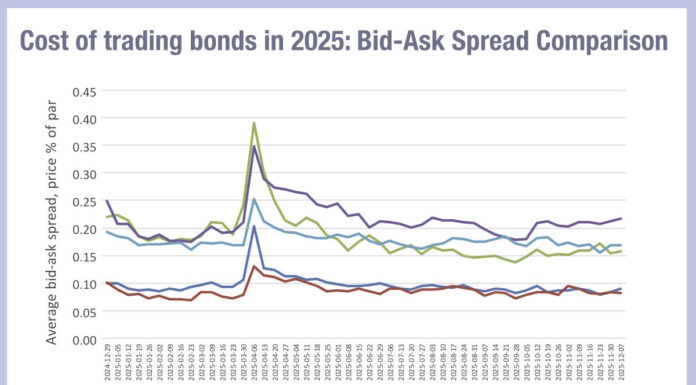New research by analyst firm Greenwich Associates has found that the request for quote (RFQ) protocol is cutting the spreads made by the most aggressive convertible bond traders by more than half.

In the report, entitled ‘Crossed, Locked and Loaded: Trading Convertible Bonds‘, Ken Monahan, senior analyst on the Market Structure and Technology team, found two reasons for this. Using Tradeweb data, he found that convertible bonds typically exhibit wider spreads than other bonds with great variability in confidence levels between RFQ responders, as valuing convertible bonds is very challenging.
The best bid offer (BBO) is formed of the highest bid and the lowest offer, and even small differences in pricing a convertible bond made between several firms, with a wide spread, mean that the BBO created from the lowest offer and the highest bid is very tight. It can also create locked markets – where the best bid and offer are the same – and crossed markets where the best bid is higher than the best offer.
Monahan found that locked and crossed markets occur, “Surprisingly often” in the convertible bond space. He wrote, “In our sample, 13.6% of all RFQs resulted in locked or crossed markets—more than 1 in 8.”
He then examined how much of the improvement in the BBO is accounted for by locked and crossed markets, and found that even removing these resulted in a better BBO than any spread offered by a market participant.
The second reason for the tight BBO he found was that, because RFQ markets do not clear the transaction is only visible to the RFQ submitter and the winner, so other responders do not necessarily know their midpoint might be off.
“So not only does the RFQ protocol convey extraordinary value on its users, the nature of the RFQ protocol is such that it preserves that value over time,” he observed.
©Markets Media Europe 2025













